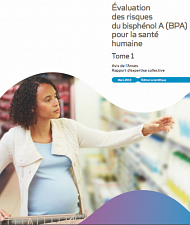France calls for ban on BPA in ATM & cash register receipts
By Rikki Stancich
Published on 10 April 2013

A new report released by France’s national food, environment and occupational health and safety agency (ANSES) has prompted French energy and environment Minister Delphine Batho to extend a ban on the presence of Bisphenol A to cash register and bank receipts.
BPA is a chemical commonly used to harden plastics. It is found in a range of household products including children’s toys, the lining of canned foods and in plastic drinks bottles. Exposure to BPA, even at very low doses, has been linked to health problems such as increased risk of heart and kidney disease, to damage to the reproductive system.
The ANSES report highlights that the presence of BPA in cash register receipts could pose health risks to pregnant women and their foetuses, in particular to cashiers, who are in constant contact with them.
On the basis of the report findings released on Tuesday, Delphine Batho proposed that in coming months, the European Commission ban BPA in such receipts under the REACH regulation on chemicals. She has urged manufacturers to begin seeking out safe BPA alternatives, and is engaging with stakeholders to ensure the ban comes into effect without delay.
France adopted legislation banning the use of materials produced using BPA in late 2012. A national ban on food contact surfaces for food products designed for infants and pregnant and lactating women came into effect in January 2013, and is to be extended to all foods beginning in 2015.
In addition, the law requires the development of warning labels to be placed on all foods. European plastics industry association PlasticsEurope is vociferously opposed to the ban, which it says has “no benefit for consumers, that it disregards existing European laws and conflicts with the scientific opinion of the European Food Safety Authority (EFSA, which declared BPA safe for use in direct food contact applications”.
Refuting the ANSES report findings, PlasticsEurope said the report’s conclusion “is in direct contrast to the most recent US Food and Drug Administration (FDA) interim update of its opinion on BPA published last week, which is taking a holistic approach towards the evaluation of the most recent science on BPA”.
FDA recently reconfirmed the safety of BPA on the basis of a “review by FDA scientists of hundreds of studies including the latest findings from new studies initiated by the agency”.
The European Commission will announce its decision on whether or not the French ban is scientifically justified in May 2013. On the basis of its decision, the ban will either be extended across all EU member countries; or if rejected, the EC will take legal action against France.
